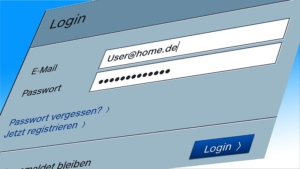Think Twice Before You Take a Fun-Looking Online Quiz – A Hacker Might be Behind It
Though it might look like a fun thing to do, you better think twice before taking that quiz that pops up on your social media page. A hacker, otherwise known as a “social engineer” might have created it to obtain your personal information.
Criminal hackers are all over social media sites, and it should be no surprise that they have tricks up their sleeves to get the information that they need. Social media crime is on the rise. Some studies show 100’s of millions of dollars have been lost, much of that in cryptocurrency and credit card fraud.
Identity theft is part of the reason a hacker will use social media to gather info, and it’s much easier to do than you might think. Let’s take a look at some of the most common scams hackers use on social media:
Surveys and Quizzes
Have you seen those quizzes that say “Click here and reveal your “Porn StarName,” or “Fill out this quiz to find out how many kids you will have?” Though these might be totally innocent, and a little ridiculous, they could also be designed by a hacker. The idea behind these quizzes revolves around “knowledge based authentication” scams. Basically information about us, questions we answer, that are used as security questions on various forms and websites. The answers in many of these quizzes could be used to reset or crack your various pass codes.
Generally, when you fill these out, you will enter information like the street you live on, the name of your pet, your favorite song, or even your birthdate. There is a dark side to this…the information you are providing may be the exact information a hacker needs to steal your identity or get into an account.
If you think about your accounts, it’s very possible that your bank, for instance, requires you to answer questions to get your password or get into your account. What do these institutions ask? Thinks like “What is your favorite song?” “What is the name of your pet?” As you can see, you are giving a hacker the answers to these questions when you are taking the quiz.
You can avoid all of this by scrolling right past these quiz opportunities.
Get-Rich-Quick Schemes
There are also “get-rich-quick” schemes on social media that hackers use. These include things like direct messages offering a grant or a fake business opportunity like a pyramid scheme. They also start things like gifting circles, that seem innocent, but are designed to steal personal information or money, or even both.
Gone are the days of fake Nigerian princes…now we are dealing with something much more sinister. You can avoid these scams by just taking a little time to research any business opportunity, offer, or even organization that contacts you via social media.
Imposter Scams from the “Government”
Scammers also try imposter scams on social media, and they do this by pretending that they are a government official, like someone from the IRS. The scammers might use messages on social media to pose as a tax collector, or they might offer a refund…if you confirm your personal information. As you might imagine, there is no confirmation — you are simply giving up the information they need to either steal your identity or hack into your important accounts.
Always delete these messages if you get them. The IRS will never contact you via social media, nor would they ask that you pay a bill with a gift card, a wire transfer, or with cryptocurrency.
Imposter Scams from “Family and Friends”
A scammer might also try a “family and friends” scam to get information from you. Thanks to social media, a hacker can learn more about who you know and trust, and then pretend that they are those people. In one of example, a hacker will pretend to be a person’s grandchild and send them a message online asking for money because they have a problem, but if you actually do send money, the cash goes right to a hacker.
If you have a situation like this, and you are not sure if a person is who they say they are, you need to do your research and reach out to the person. Don’t just pay them without doing this.
The Romance Scam
Finally, we have the romance scam. In this case, the hacker will strike up an online relationship with a potential victim, and it will eventually become romantic. These can happen on social media sites, or they can be directly on a dating site. They often create personas that have exotic jobs, such as a doctor in Africa, or as a military member stationed in the South Pacific. They work to build trust with their victim, and when the time is right, they come up with a sob story about how they need money, and many victims, believing that they are in a true relationship with this person, send the money willingly.

To avoid this type of scam, never, ever send money to a person you meet online, especially if they say they are a doctor or a member of the military.
Protect Yourself from ID Theft and Social Media Scams
Now that you know that there are a lot of hackers and scammers out there trying to take advantage of you, here are some ways that you can protect yourself:
1. Spruce Up Your Privacy Settings–The first thing you need to do is to set up your social media profile to be private and set it so that only your friends and family can access it. This means that you have a much smaller chance of getting access to your account. Also, it’s a good idea to stop sharing information like where you went to high school and your full date of birth. The less information you post, the less likely it is that a hacker can gain information from you.
2. Be Skeptical – You always want to be a skeptic when it comes to anything online. There are so many scams out there, and so many attempts to get information, that you really need to be skeptical. If you are willing to lower your guard, a scammer is definitely willing to take your information. So, really look deep at any messages you might receive, especially if something looks weird or sounds off. You should also notice things like bad grammar or a lot of typos. Those are a great indication that you might be dealing with a scammer.
3. Actually Know the People You are Friends With – Do you actually know everyone on your friend list in real life? Most people don’t, but you really should be selective about who you are allowing to see your content. Anyone on your friend list can see your information, and that means they have access to personal information about you if you post it. You also have to be aware that someone on your friend list could be copying and pasting from your page or making screen shots.
4. Follow Up – Have you gotten any messages from a friend of yours that just seems like it is a bit strange? If you do get this type of message, don’t click on anything and don’t reply. For instance, if your best friend Peter sends you a message to “Check out this link,” and it’s something that Peter would never be interested in, you should check with Peter another way, like with a phone call or text, to find out if it’s legit or not.
5. Look Out for Others – Finally, you should look out for other people when you get a weird message or strange request. If you get a weird message from a friend, you should let that friend know. If someone lets you know that there might be a duplicate account of your personal account, you should let your friends know.
Try to Stay One Step Ahead of the Hackers
Before concluding, there are a few other things that you can do in order to stay a step or two ahead of hackers. First, make sure that you are using a strong, unique password for your account. Utilize a password manager. Never use the same passcode twice. A virus protection software suite is also recommended. Using firewalls is helpful, too, as well as a VPN.
You can also sign up for ID protection services, which will help to keep important information, such as your email address, under monitoring. With this type of protection and a bit of focus from you, it will be easier than ever to keep an eye out for scams, and you can get back to enjoying social media as it was intended.
Robert Siciliano CSP, CSI, CITRMS is a security expert and private investigator with 30+ years experience, #1 Best Selling Amazon.com author of 5 books, and the architect of the CSI Protection certification; a Cyber Social Identity and Personal Protection security awareness training program. He is a frequent speaker and media commentator, and CEO of Safr.Me and Head Trainer at ProtectNowLLC.com.

 Being in the business of security awareness training, and having a relatively accessible (and some might say – high) online profile. I am contacted by a lot of people facing a number of different issues. Lots are victims of various crimes, both in the physical and virtual world, such as victims of stalking, or they claim their devices are being spied on, (often I think they might be legit paranoid), or they’ve lost money in some type of a scam, you name it. Sometimes I function as a “victims advocate” and I do have a soft spot for those in a bind.
Being in the business of security awareness training, and having a relatively accessible (and some might say – high) online profile. I am contacted by a lot of people facing a number of different issues. Lots are victims of various crimes, both in the physical and virtual world, such as victims of stalking, or they claim their devices are being spied on, (often I think they might be legit paranoid), or they’ve lost money in some type of a scam, you name it. Sometimes I function as a “victims advocate” and I do have a soft spot for those in a bind. There are a few things that you can, and should do… straight from Apple:
There are a few things that you can, and should do… straight from Apple:























